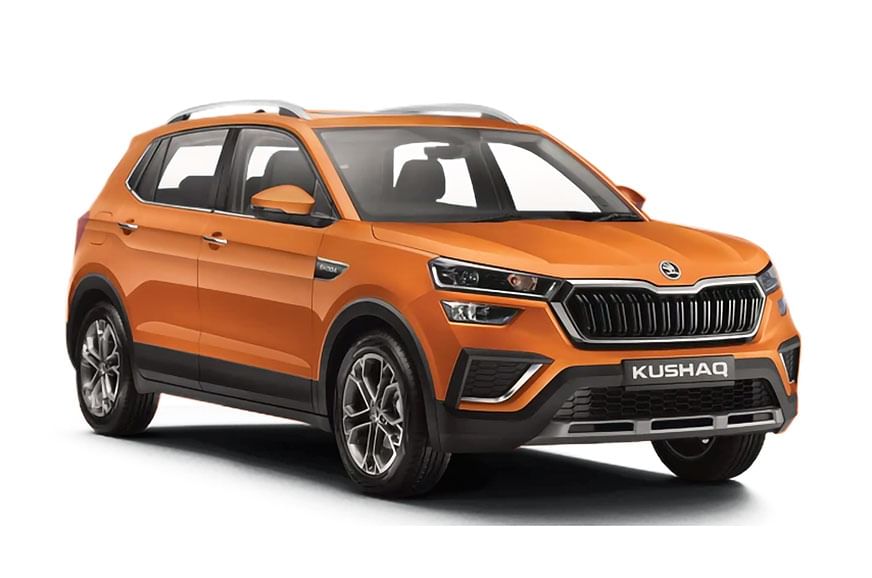New vs old GNCAP crash test protocols: what's different?
The new crash test protocols also include active safety features like ESC.
Published On Oct 21, 2022 09:00:00 AM
24,797 Views
Follow us onGlobal NCAP recently released safety ratings of the Volkswagen Taigun and Skoda Kushaq SUVs, which were tested under the new crash test protocols. These new protocols came into effect in July 2022, but the 5 star scale remains the same. So what’s new and how different is the new system from the previous structure? While the technical changes and amendments are major, we take a look at the major differences.
The old protocol's star rating only indicated a car's performance in frontal tests. However, the new protocol is reflective of a more holistic safety rating, which takes into account active safety like the requirement of ESP, and awarding points for seat belt reminders along with additional crash tests for side impact protection.
GNCAP previous protocol
Previously, Global NCAP assessed vehicles based on just a single frontal crash test. Called the (Front) Offset Deformable Barrier (ODB) test, it involves crashing a vehicle into a deformable barrier with 40 percent overlap at 64kph.
The readings were then taken from test dummies placed inside the car, which were then used to calculate the vehicle's star rating – one for adult protection and another for child protection. The results also published individual score points out of 16 for adult protection and out of 49 for child protection. An additional crash test – the side impact test – was conducted on vehicles aiming to score five stars, or those that were submitted voluntarily by the manufacturer.
Thus, in the previous protocols, only passive safety features of vehicles were assessed, and there was little consideration given to active safety features.
GNCAP new protocol
While the speed and offset percentage remains the same in the frontal crash test, Global NCAP has become more stringent in calculating the chest load readings on the crash test dummies.
Coming to side impact tests, under the new protocols, the test is now compulsory irrespective of whether the car is aiming for five stars or not. However, if a vehicle scores zero stars in the frontal crash test, Global NCAP will not be under obligation to perform a side-impact test on that vehicle. Additionally, in the previous protocols, the regulation did not require child dummies for side impact tests. However, they are now compulsory.
In terms of the score, the maximum adult protection score is 34 points (16 points for front crash test, 16 points for side impact tests and two points for seat belt reminders). Importantly, every seatbelt reminder gets 0.5 points from Global NCAP, with the maximum points awarded capped at two. However, for any car to qualify for these points, it should have seatbelt reminders in all seats.
Under the new protocols, the 5-star rating is given to a car only if it secures the requisite score, and meets the following conditions:
Pole side impact: The new protocol also takes into consideration the side head impact calculated with a pole test, something the previous protocol did not take into account. For a vehicle to be tested for pole impact, Global NCAP mandates it to be fitted with some kind of head protection system.
By the end of 2022, Global NCAP mandates that 30 percent of the total sales volume must be equipped with some form of side head protection, which it plans to take up to 50 percent in 2023 and 90 percent by 2025. Interestingly, however, the government’s upcoming 6 airbag mandate could provide a boost to vehicles in this test.
ESC requirement: To secure 5 stars, Global NCAP has also mandated Electronic Stability Control (ESC). The protocols state that fitting ESC in cars must be a two-fold step – as standard in the bestselling variant of the vehicle or in equal number in other variants. For instance, if the bestselling variant sells 100 units a month, ESC should be standard fitment in said variant or in 100 units of all other variants put together.
GNCAP also requires manufacturers to make ESC standard across all variants within two years of the test publication, and, in those two years, it must be offered as a “standalone” option, and not combined with any other feature.
Pedestrian Protection: For a 5-star rating, the new protocols also require pedestrian protection systems to be standard fitment, according to UN127 or GTR9. And, to demonstrate functionality, car manufacturers must get validation for UN127 or GTR9 tests and produce a pass/fail result.
Seat belt reminder: For cars to qualify for the five star rating, the car should get at least one point for seat belt reminder.
Are the new Global NCAP test close to Euro NCAP with the new protocols?
While the new GNCAP protocols are a massive jump there is still more that needs to be done, especially with respect to active safety. In an interview with Autocar India, Alejandro Furas, secretary general of Global NCAP said that with the new protocols, we are “about 10 years behind Global NCAP”. However, he believes that because most of the safety technology is already available, and only a matter of installing in cars, Global NCAP will not have to wait for another nine to 10 years to catch up with Euro NCAP.
The new regulations will be in effect for another four years, before they are updated again. By 2026, Global NCAP is looking at placing a single star rating system – like Latin and Euro NCAP – and is likely to also have more advanced active safety features like Autonomous Emergency braking (AEB), Lane Departure Warning (LDW) and Blind Spot Detection (BSD).
Also see:
Bharat NCAP roll out confirmed for April 1, 2023
Copyright (c) Autocar India. All rights reserved.









Comments
Member Login
Personal Details
No comments yet. Be the first to comment.